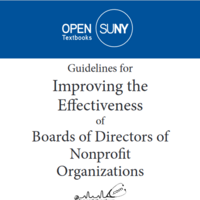Search
Books+
Searching 1,730 books
Search related to the career IT Manager
Strategic Planning and Decision Making: IT Managers play a crucial role in strategic planning and decision making within an organization. They assess the technological needs of the organization and align them with the overall business objectives. By identifying opportunities for innovation and improvement, they contribute to the development of effective IT strategies.
Resource Management: IT Managers are responsible for managing IT resources, including hardware, software, networks, and personnel. They ensure that the organization has the necessary infrastructure and technology to support its operations. By efficiently allocating resources and optimizing their utilization, they contribute to cost savings and improved productivity.
Security and Risk Management: IT Managers play a vital role in ensuring the security of an organization's digital assets and data. They develop and implement robust security measures, such as firewalls, encryption, and access controls, to protect against cyber threats. They also assess and mitigate IT-related risks, ensuring business continuity and compliance with regulatory requirements.
Project Management: IT Managers oversee the planning, execution, and completion of IT projects. They define project goals, allocate resources, and monitor progress to ensure timely delivery. By effectively managing projects, they contribute to the successful implementation of new technologies and systems, enhancing operational efficiency and customer satisfaction.
Collaboration and Communication: IT Managers facilitate collaboration between IT teams and other departments within the organization. They act as a bridge between technical experts and non-technical stakeholders, ensuring effective communication and understanding. By fostering collaboration, they promote innovation, problem-solving, and knowledge sharing across the organization.
Continuous Improvement: IT Managers drive continuous improvement initiatives within the organization. They stay updated with emerging technologies and industry trends, identifying opportunities for process optimization and innovation. By implementing best practices and promoting a culture of learning, they contribute to the organization's long-term growth and competitiveness.
Vendor Management: IT Managers are responsible for managing relationships with technology vendors and service providers. They evaluate and select vendors, negotiate contracts, and ensure service level agreements are met. By effectively managing vendor relationships, they ensure the organization receives quality products and services at competitive prices.
Training and Development: IT Managers oversee the training and development of IT staff, ensuring they have the necessary skills and knowledge to perform their roles effectively. They identify training needs, organize workshops or seminars, and encourage professional certifications. By investing in the development of IT personnel, they enhance the organization's technical capabilities and foster employee satisfaction and retention.
Source: Various AI tools





































